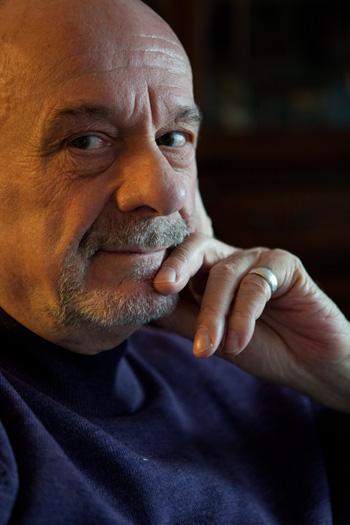Norbert Beilstein was born into a middle-class family on the German island of Rügen in 1943, just as the Third Reich was beginning to crumble. Following his mother’s death in 1945, he moved with his family to Wiesbaden in what was then West Germany.
“I’m not a very good German,” Beilstein says. “I was always late, I didn’t follow the rules, I was always a little step outside. At every party I was told, ‘Norbert, don’t take off your clothes,’ but when the party got boring, I took off my clothes.”
By the age of 17 he was sneaking into Wiesbaden’s few gay clubs, though he was often left to spend a portion of the evening hiding under tables. Two weeks before Easter, 1962, a 19-year-old Beilstein met a handsome stranger in the locker room of a public swimming pool.
“We didn’t say one word to each other; we just looked,” he recalls.
In the car, after dinner and drinks, the man took a wrong turn down a one-way street and local police stopped the two. The man, who turned out to be a juvenile court judge, managed to talk his way out of the situation. But police were suspicious and tailed them. An unexpected thunderstorm led the couple into the woods.
“We had just started something, and then flashlights,” Beilstein remembers.
The two were arrested under Paragraph 175, the anti-gay law that had been re-ratified in West Germany after the war.
“Tomorrow, in front of the judge, just say we kissed,” Beilstein’s partner whispered to him from his cell.
Beilstein was sentenced to just one night, and paid a fine of 50 marks. The other man spent 10 days in prison, paid a 100-mark fine, and resigned from the bench. Beilstein entered the German army in 1963 for a mandatory two-year stint. “There I had the most sex,” he happily recalls. When his time was up, he visited Toronto to comfort a friend who had suffered a death in the family.
“I just fell in love with Toronto. It was just so big and so open and everyone was always saying, ‘Have a nice day.’ Toronto was way backwards with gay life in 1975,” he recalls now. “Everything was still very grey.”
A few years later Beilstein found himself working for a bank in Vancouver. He says he found gay life in his new home quite different. “They were so far ahead; closing time was two o’clock and they had 10 or 12 bars.”
Beilstein lived on the West Coast for the next 18 years and returned to Toronto to be with Alan, his partner of 33 years. “Once I left Vancouver, it was just the opposite: Vancouver is very down and there’s nothing left anymore, and here in Toronto it is booming.”
Beilstein, now 68, is retired and living in Toronto’s gay village. He says he is grateful for all the things the gay community has achieved over the years, but he is nostalgic for the naughty thrills that were had before AIDS and gay lib.
“I have to be honest with you,” he says. “I found it much more exciting, the sneaking up, the getting to know each other.”
He says he misses the covert codes gay men once used to communicate with each other. “There were ways to identify yourself: a little ring on the finger, or you would wear your watch upside down.”
As for the right to marry, Beilstein is ambivalent.
“I always knew I was different, so I don’t want to be a part of that marriage stuff . . . [but] I’m glad [we] can do it.”
For Beilstein, remembering our queer history and passing it on to the next generation is of vital importance.
“I think it should be kept alive,” he tells me. “It has to be told and told and told again.”

 Why you can trust Xtra
Why you can trust Xtra


